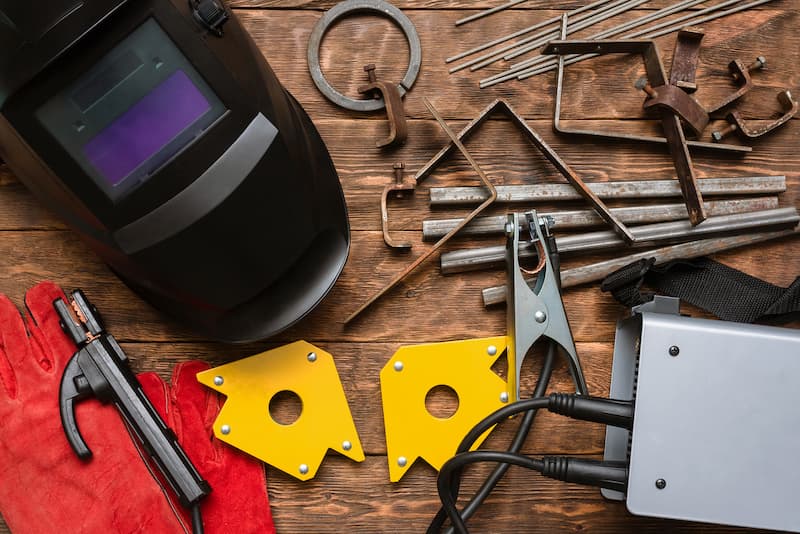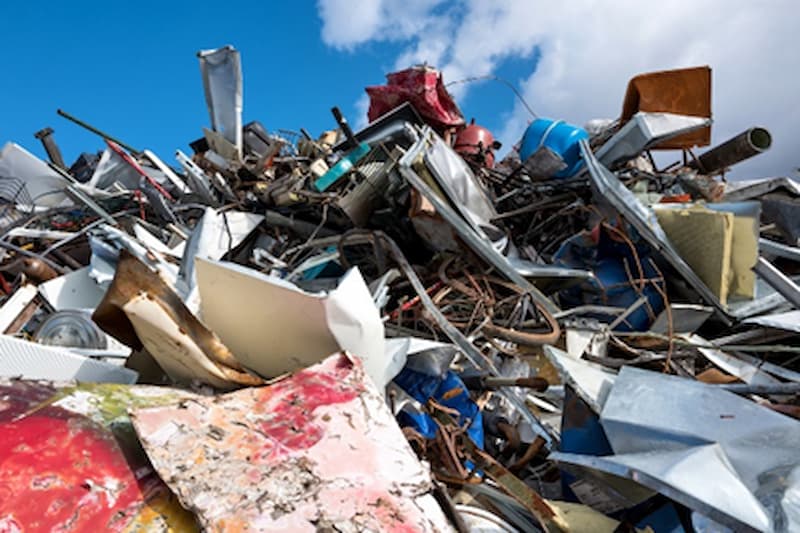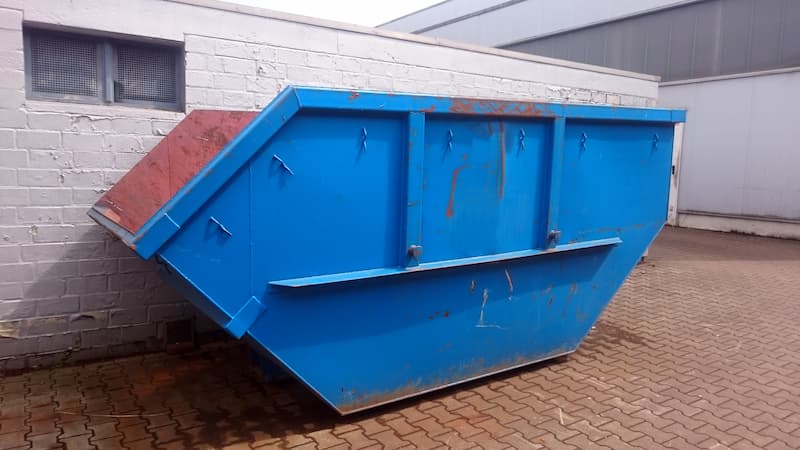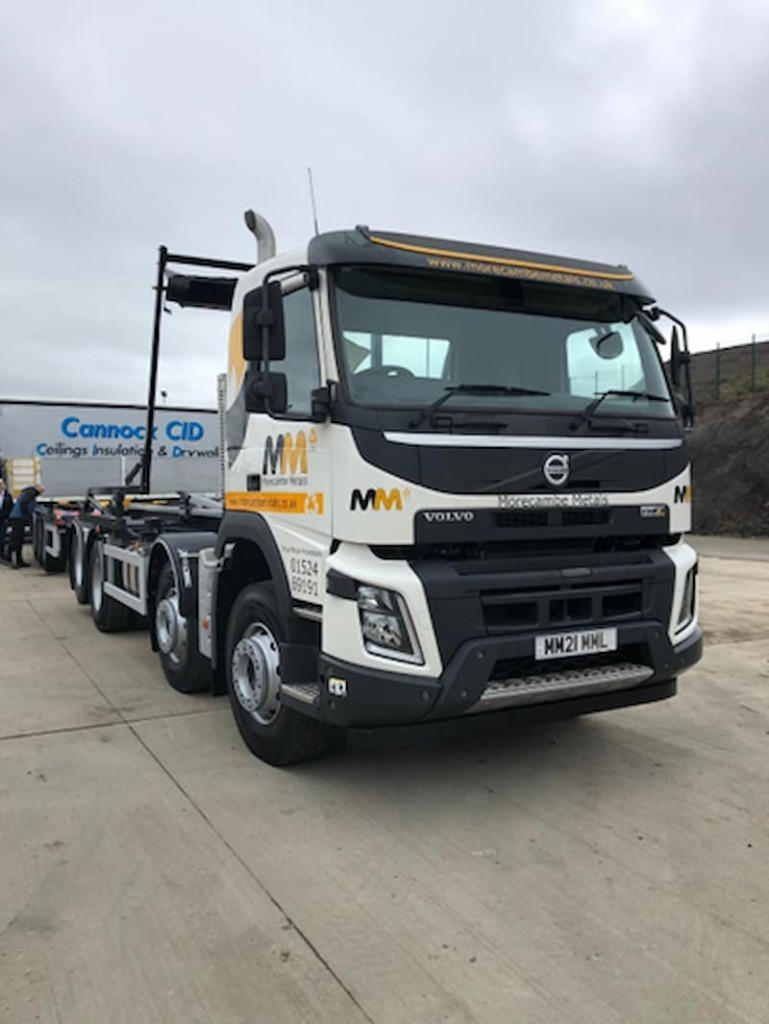Scrap metal is found everywhere—from industrial workplaces and construction sites to our homes and offices. Typically, it can be classified into two main types: ferrous and non-ferrous metals. Ferrous metals such as steel and iron are magnetic and prone to rust, while non-ferrous metals, including aluminium, copper, and brass, are non-magnetic and resistant to corrosion.
Each of these metals can be processed through our scrap metal recycling facility in Morecambe. However, when it comes to handling these metals, caution should be taken to ensure the safety of the person handling them and others who may be onsite. Today, we’ll be covering everything you should consider when dealing with scrap metal recycling.
Understanding the Risk of Handling Scrap Metal
While scrap metal recycling is an eco-friendly practice, it does entail a range of potential dangers if not managed conscientiously. Whilst the machinery may pose a significant safety concern, the metal itself can have some dangerous repercussions. Here are some of the most common risks associated with handling scrap metal:
- Cuts and Infections: Sharp, jagged edges, especially on ferrous metals, may cause cuts and abrasions. Even small injuries can lead to severe infections if not treated immediately. This risk is accentuated when dealing with rusty metal pieces, which may be harbouring harmful bacteria.
- Tetanus Risk: Tetanus is an infection that can occur as a result of a deep wound caused by a metal object, especially if it is rusty. Therefore, it’s important to ensure tetanus vaccinations are up-to-date for everyone in the workforce.
- Heavy Metal Poisoning: Exposure to some types of metals, particularly when in dust or particulate form, can lead to heavy metal poisoning. This is a chronic condition that can result in a host of health complications if not addressed swiftly and accurately.
- Handling Large, Heavy Objects: Handling and moving large or heavy pieces of scrap metal can be dangerous. Accidents from falling or improperly lifted heavy objects can lead to serious injuries or even fatal accidents.
Understanding these risks can help in creating a safer working environment for your team.
Importance of Personal Protective Equipment (PPE)
One of the most integral aspects of scrap metal safety is the appropriate use of Personal Protective Equipment (PPE). PPE refers to protective clothing and equipment designed to safeguard the wearer from potential work-related injuries or health hazards. When it comes to scrap metal handling, PPE acts as a first line of defence against potential risks, providing much-needed protection to potentially exposed areas of the body.
Essential types of PPE for scrap metal handling include:
- Gloves: High-quality, puncture-resistant gloves can protect your hands from cuts, scrapes, and puncture wounds, an imperative consideration when dealing with scrap metal.
- Steel-Capped Boots: These robust boots protect your feet from heavy objects. If a piece of metal were to fall onto your foot, steel-capped boots would effectively minimise the potential damage.
- Hard Hats: Essential when handling, moving, or working around large, heavy objects, hard hats prevent head injuries that could result from falling metal.
- Goggles: Eye protection is crucial when handling or processing scrap metal. Goggles protect your eyes from minuscule bits of metal that might be catapulted into the air during cutting, grinding, or shredding processes.
Our Morecambe Metals team firmly adheres to the strict use of PPE in our day-to-day operations. We not only provide our employees with all the necessary PPE but also ensure they are educated on their correct use. An informed and well-equipped team is the key to maintaining a safe, efficient, and productive work environment.
Safe Handling Practices
The importance of safe handling practices when dealing with scrap metal cannot be overstated. Whether you wish to sell scrap metal or are a scrap metal buyer, full familiarity with the type of metal, knowing how to lift and move heavy items correctly, and awareness of the dangers of improper handling are essential for ensuring safety and preventing injuries or accidents.
When moving or lifting heavy scrap metal pieces, always bend at the knees, keeping your back straight and the load close to your body. This approach minimises the strain on your back and reduces injury risk. Implementing a buddy system for lifting heavy items is also a smart and efficient technique. The combined effort reduces the strain on one individual, making the lifting easier and less hazardous. Additionally, make sure your path is clear before moving heavy objects to prevent tripping or slipping.
Handling Specific Types of Scrap Metal
Understanding the characteristics of different metals is fundamental, as handling strategies may vary depending on the type of scrap metal.
Ferrous Metals
This category includes iron and steel, and these metals are recognisable by their magnetic properties. Ferrous metals are commonly found in items like cars, appliances, construction material, and various kinds of machinery.
Precautions when handling ferrous metals for recycling include:
- Be mindful of sharp edges, which can cause cuts or puncture wounds.
- Handle rusty metals with care, as they can harbour harmful bacteria and lead to tetanus.
- Due to their heavy weight, use proper lifting techniques or machinery for large pieces to prevent physical strain or injuries.
Non-Ferrous Metals
Non-ferrous metal recycling, including copper, aluminium, and brass, are valuable because they do not rust and are non-magnetic.
Here are some safety considerations for handling these metals:
- Similar to ferrous materials, always use gloves to protect your hands from accidental scrapes or cuts.
- As these metals are often heavier than their ferrous counterparts, always use sensible lifting techniques or the buddy system for large items.
- Some non-ferrous metals, like copper, can tarnish and dare green, which can cause skin irritations. Therefore, always use gloves when handling these metals.
Recognising different metals becomes easier with experience. A quick way to distinguish ferrous from non-ferrous metals is by using a magnet – ferrous metals will stick, whereas non-ferrous won’t.
Handling different types of scrap metals safely and efficiently requires knowledge, care, and understanding. Therefore, knowing your scrap metal and respecting the handling guidelines significantly increases safety while working.
Storage and Organisation of Scrap Metal
The storage and organisation of scrap metal is another pivotal element in ensuring a safe and productive work environment. Proper storage minimises injury risk, creates a more efficient workspace, and helps prevent environmental and health hazards. It also allows workers to locate and access the metal they need swiftly. It can help in segregating different types of metals, enabling you to build your collection before taking advantage of the likes of our scrap metal collection services.
Opt for sturdy containers matched to the weight of the metal being stored. For instance, heavy-duty plastic bins may work for lighter scrap metals, while larger or heavier pieces may require metal bins or skip bins. Clear signage indicating the type of metal contained, potential hazards, and correct handling methods helps workers immensely in their tasks while enhancing safety in the workspace. We have various skips with an assortment of sizes to suit the needs of your business; whether you need a temporary skip for the day or a more long-term solution, we can help keep your yard organised.
Importance of Regular Safety Training
Continuous safety training is essential for a safe and efficient workspace in the scrap metal industry. It keeps employees updated on best practices, handling techniques, and advanced processing methods. Regular training prevents accidents, increases productivity, and reduces downtime. Employees learn to safeguard themselves and colleagues, operate new machinery, and follow industry best practices.
At Morecambe Metals, we organise regular training sessions to educate our team on handling various metals and processing operations. Our commitment to safety ensures that we remain a leader in the metal recycling industry.
Get Help With Your Metal Recycling With Morecambe Metals
When it comes to handling scrap metal, safety is a high priority. At Morecambe Metals, we believe in putting safety first – it is not just a mantra but an integral part of our company culture. We understand that knowledge and rigorous adherence to safety procedures ensure a productive and hazard-free environment for our precious human resources.
We invite you to explore our site to see first-hand how our commitment to safety guides our daily operations. If you have any queries about our safety practices, our team would be more than happy to assist, so feel free to contact us. Your safety is our priority, and we are always excited to share our knowledge with those interested in learning more about the metal recycling industry.





